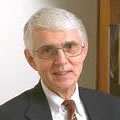This morning I’d like to make a little podcast on the human mind, asking the question, “Do I overthink?” and, by implication, you the listener: “Do you overthink?” If you don’t mind, I’d like to start with a quote from Anton Chekhov. Anton Chekhov began his career as a physician, and then, later, turned to writing. Perhaps had he only remained a physician all his life, he would not be as famous as he is now. Chekhov is considered one of the truly great authors of our times, along with Dostoevsky and Tolstoy and others, and he wrote a great deal of wonderful material. Here’s this quote.
Oh! I have now a mania for shortness! Whenever and whatever I read, my own or other people’s works, it all seems to me not short enough.
And that’s the end of that quote. And of course, we can extrapolate and apply that to the topic of this little podcast. A variant of that is TMI (too much information): Do I have too much information in my head? We can wonder about that. And I know in my own case and in the case of those whom I counsel, not only do we have too much information, but we actually seek too much information; we seek particularly on the internet and on conversations more information than the Lord wants us to have. He wants us to have simple, clean, firm, pure minds.
When I counsel particularly seminarians—I’d say most—I ask, “How are you with your own mind? How is your thought process? Do you think too much?” Invariably, the answer is: “Yes!” Now, that takes the form of what ifs, worries, preoccupations, and even now, as I am preparing to do some good work for the Church—that’ll be tomorrow—all these thoughts come—what if, what if, what if, maybe, maybe, maybe. All those “lack of trust in the Lord” thoughts—TMI, too much information—can lead us astray.
One of the things that can be helpful to us along these lines is a distinction made by Stephen Covey in his wonderful book, The Seven Habits of Highly Effective People. I think that’s the exact title: highly effective or highly successful people. And the distinction is between matters of influence and matters of concern. I have pondered that a great deal. That is to say, matters of influence are those things, issues, in my life over which I have some control. For example, my weight: I have some control over my weight and what I eat for lunch and dinner—and breakfast—and a number of other things in my life that I do have some control over; whether I say yes or no to a request from a seminarian to come for counseling. That’s the matter of— circle of influence.
Circle of concern are all of those things in my life that I need to be aware of but I have no influence over. I simply need an awareness, and I let go. For example, the ozone layer, and even climate change. I need to know what’s going on. I need to know my role. I need to vote and perhaps even give a donation to those doing good things with those works. But basically, there’s not much I can do about either of those. And of course, there’s just so many. Most of the political issues, I can’t do really anything about except vote, and I do vote.
The problem with us is—with me, and probably you—is that I have a great deal more mental energy and inquisitiveness about matters of concern that really don’t apply to my life. My life will go on without all of that mental clutter.
I’ll now play a song for us that can help us simmer down a little bit and become more simple and more trusting, more and more and more trusting of our Lord Jesus Christ, our Redeemer, our Savior, our strength and our song. The song, sung by St. Vladimir’s Choir, “Hear Me, O Lord.” The question is: How am I going to reduce my mind to a more focused, clear, firm, simple content with less—fewer—ideas and too much information, and the only way is to ask the Lord to do it for us. So we sing, or hear singing, of “Hear Me, O Lord.” So here is that song.”
Lord, I called upon thee: Hear me! Hear me, O Lord. O Lord, I have called upon thee: Hear me! Receive the voice of my prayer. Lord, I have called upon thee: Hear me, O Lord!
I’d like to end where I began, with a quote from Chekhov, simply because it has provided me a great deal of thought to ponder in my own life and in my own works, not only in my writing but in my manner and in my life generally. Here’s that quote.
Oh! I now have a mania for shortness! Whatever I read, my own or other people’s works, it all seems to me not short enough.
That’s about all I have to say on this topic.

 Dr. Albert Rossi
Dr. Albert Rossi